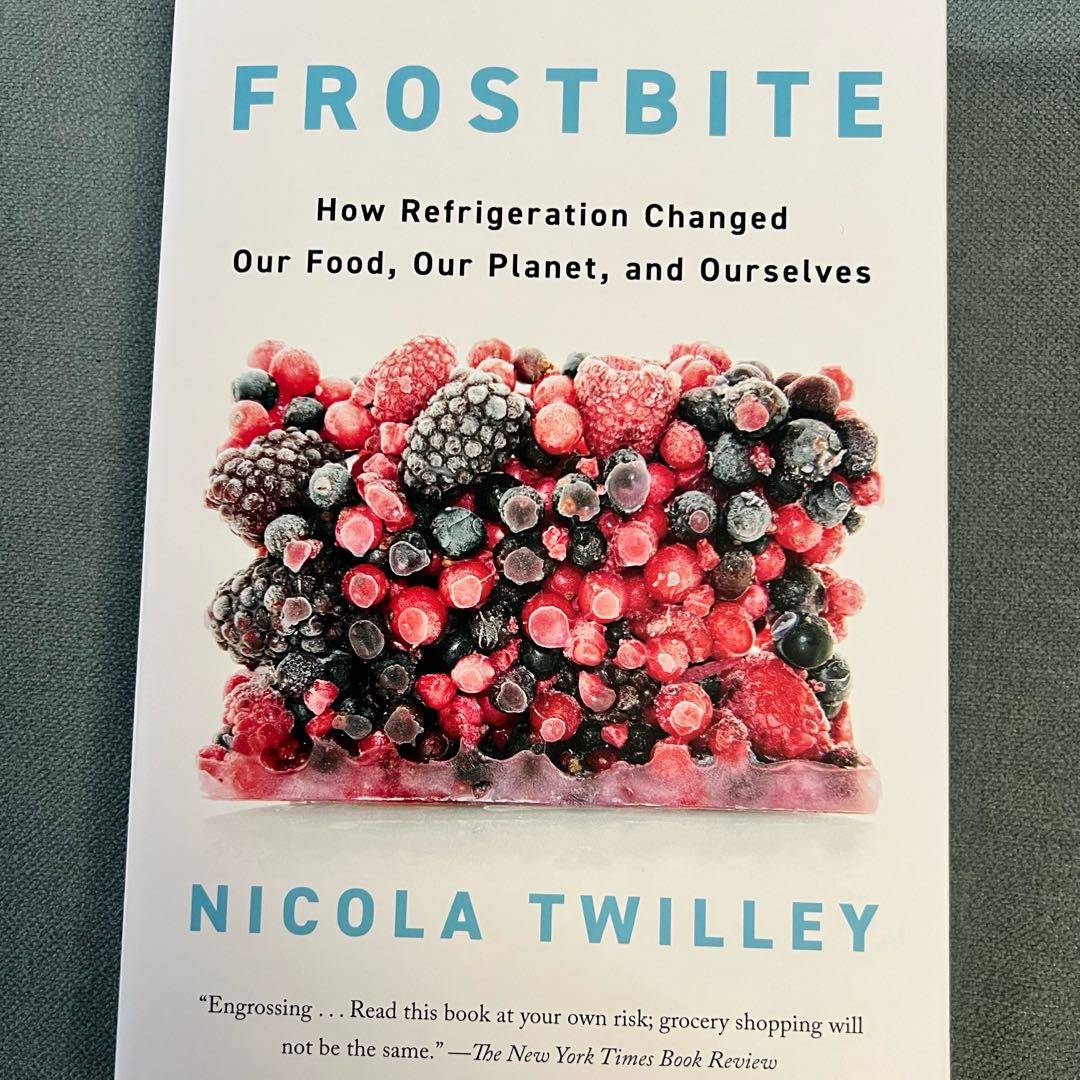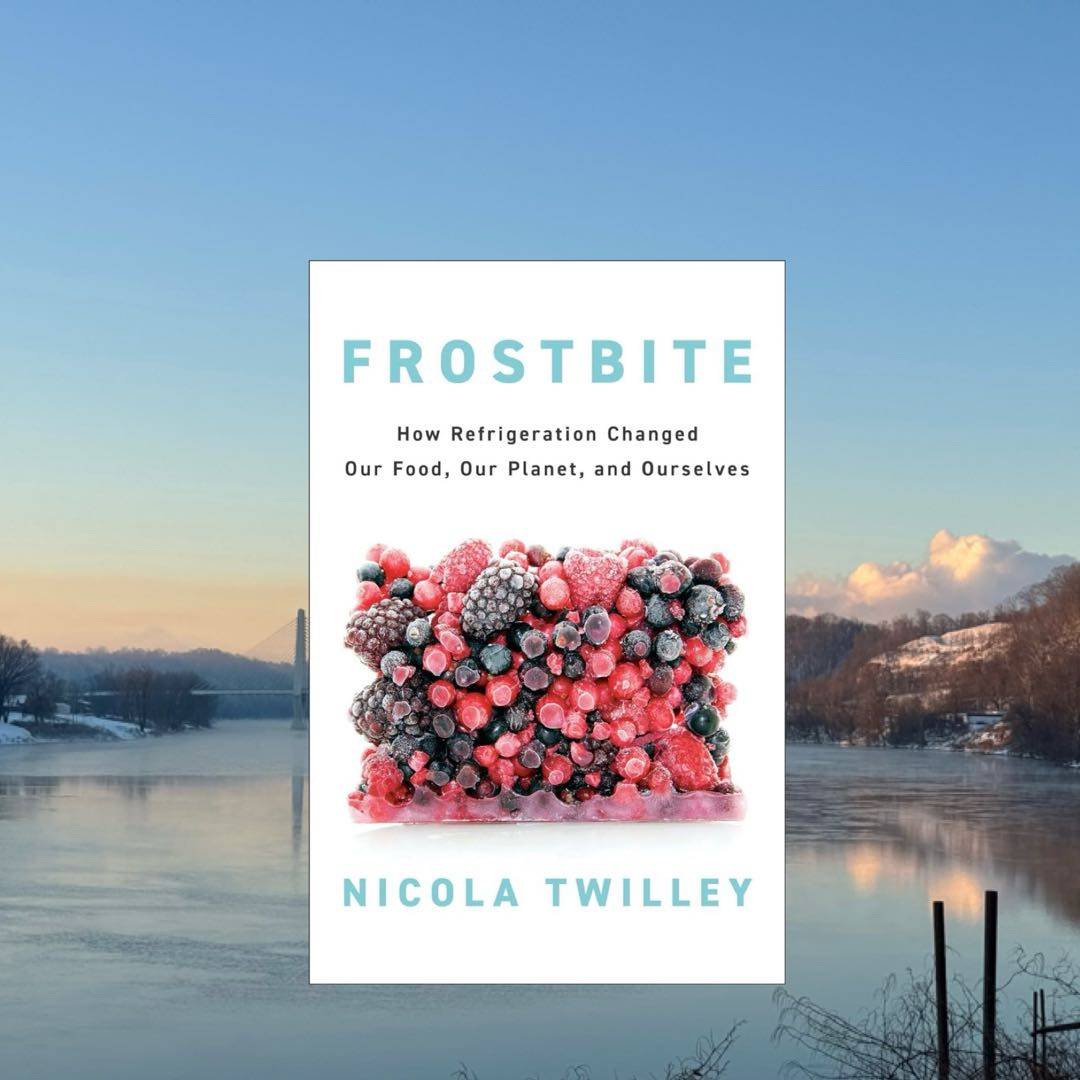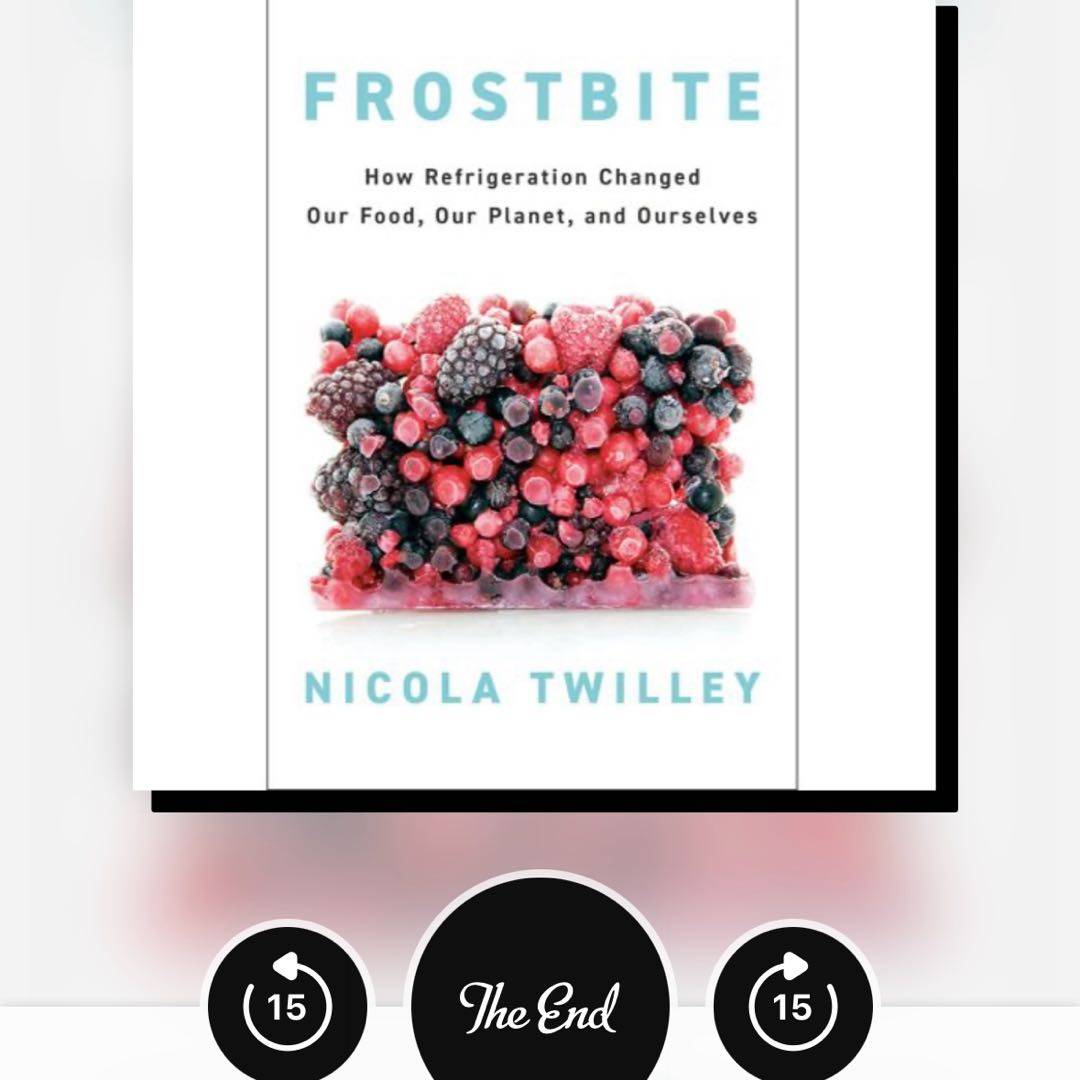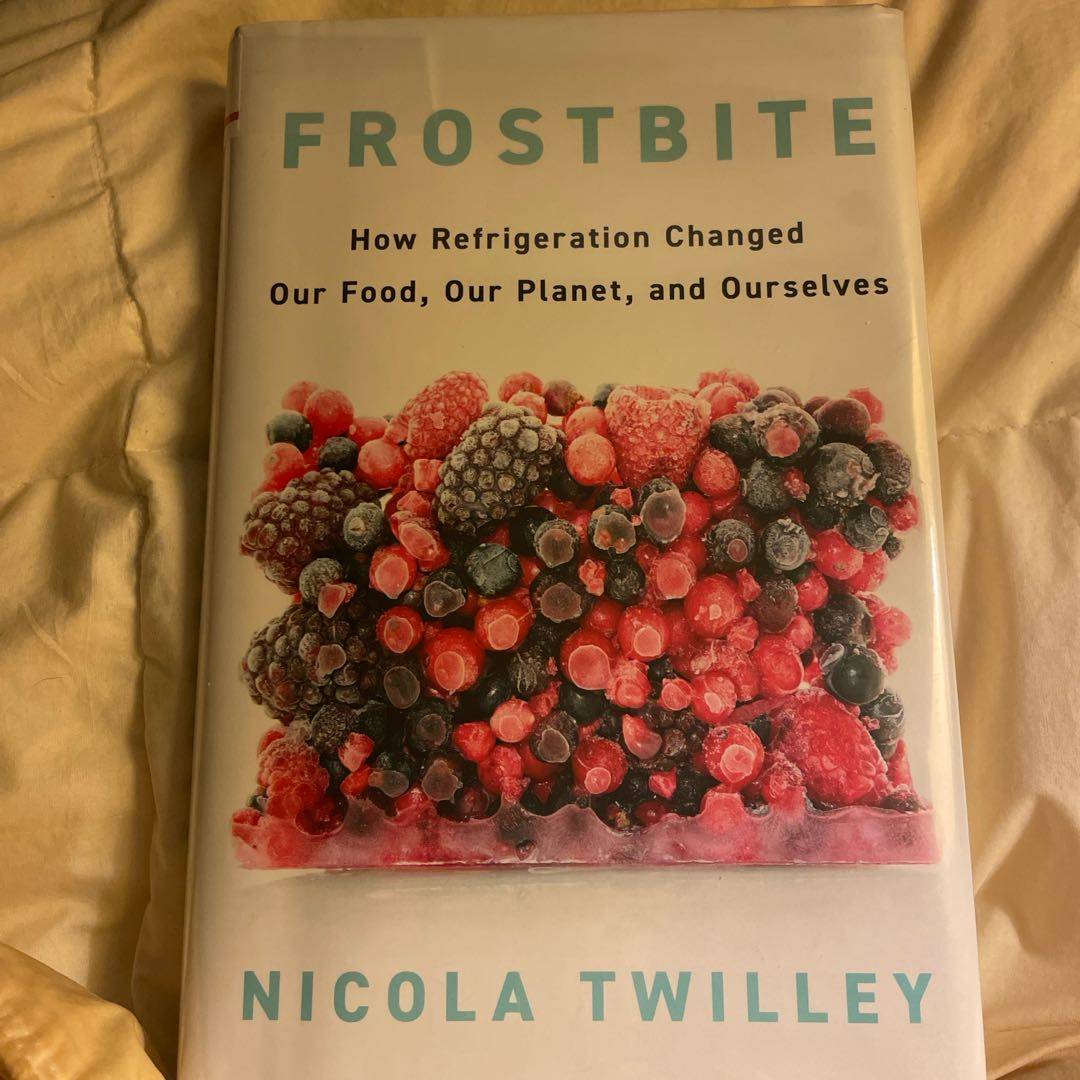
My food history obsession strikes again!

My food history obsession strikes again!

So good! I learned so much about refrigeration, but this has changed my view of modern life vs pre-refrigeration times (not that long ago!). Modern refrigeration has changed everything! The way we eat, farm, and subsequently waste food. It has shaped cities and communities around the world. Interesting chapter at the end about the downfalls of refrigeration and new technologies to preserve food to replace it. Also good on audio!

This was an interesting book! It describes the history & impact of refrigeration in the world. I‘ve never considered how so much of my food has to be refrigerated at some point in its lifecycle! She touches on the energy use & environmental impact of the “cold chain” in the world as well, and compares refrigeration in the US to other countries like China & Rwanda. This is a great book if you have a general interest in history, culture, & science!

I understand that when I say to people that a book about refrigeration is absolutely fascinating, it makes me sound really nerdy, but this book is so interesting. From the warehouses that store our food (shocked at how old the apples I eat actually are) to history to innovations to climate to supermarkets to women in the workforce, this book is readable and informative. Loved it.